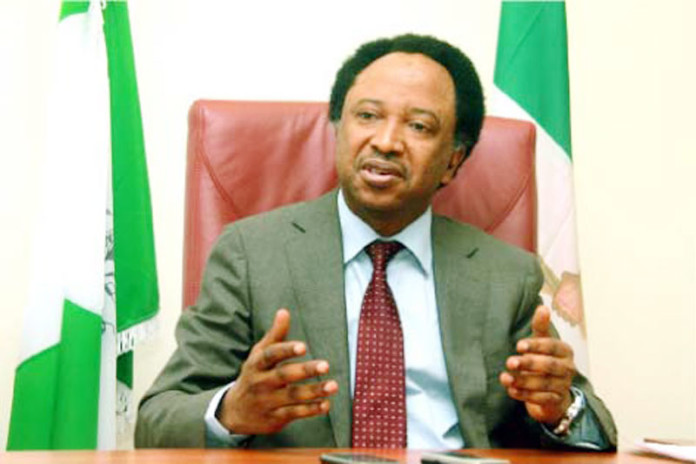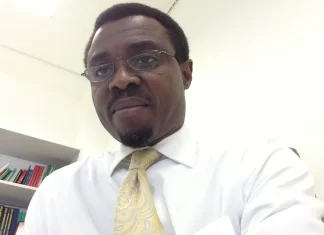INTERVIEW
Senator Shehu Sani represents Kaduna Central in the Senate. He is also Chairman, Senate Committee on local and foreign debt and Vice Chairman, Committee on Foreign Affairs. In this interview, he said Nigeria does not need 36 states if it wants to be economically viable. Instead, the 36 must be collapsed into only the geo-political zones as 6 strong, viable states. He also spoke on the country’s debt profile.
What are the challenges you face as senate committee chairman on debt?
Chairing a committee in the National Assembly is presiding over a parliamentary group that focuses on special areas. Since I took over as chairman, senate committee on local and foreign debt, I went through profile of states and Federal government with the view of assessing our current debt level and how much was applied to the socio-economic life of Nigeria and my investigation reveals that over $65bn was collected by both states and Federal government: $10bn as foreign loan and the rest $40bn as domestic debt. This is so far the profile of Nigeria’s external debt. On the foreign affairs, our duty is to support and facilitate the smooth sailing of Nigeria’s ministry and foreign policy. We have a duty to oversee that Nigerian foreign policy is in tandem with its own national interest and it has not been good so far.
Is Nigeria servicing its debt?
The Debt Management Office said we are now currently servicing our debt with about 28% of our GDP. But an international organization recently said we are servicing that debt with double that amount. So the point of agreement within experts was that, our debt is still within the safe limit and we can still get more loan if we want. But what I am saying here is that the Debt Management Act has stated how loans will be collected both locally and internationally and the key point in that Act was that, there must be a clear definition of what that money is going to do and also there should be a clear report of whether those who want that loan have not over-borrowed. So going by the fact that we have allowed an era of change and there is a need to be decisive, whatever loan we will source for ourselves as an economy, it must be geared towards investing in agriculture, power, solid minerals and the rest. The Senate will not accept loans that will not be used for any sector that cannot service that loan. If we suffocate our economy with loan, it will be difficult for us to meet up. We must accept one fact that in the last four decades, we lived with the illusion that oil will be with us forever. Now, we have reached a point where the oil is there, but it has no value as it should be. More countries are discovering oil and the price of oil has gone down drastically, federal allocation that used to be up to one trillion has reduced to less than N300bn and this has seriously affected the ability and capacity of states. They can’t pay salaries not to talk of embarking on capital projects. The economy itself needs to be seriously revamped and the only way is to initiate measures that will encourage Nigerians to spend less on import of frivolous things and encourage Nigerians to export and in due time, stop our dependence on oil revenue.
Should Nigeria continue to service this debt from the little revenue we are getting from oil?
When you collect money from domestic or foreign source, you have to pay back for you to be viable. And to continue to be taken seriously as an economy, you must service your debt. If you default, a lot of the aspects of your economy will come to a halt. We need to reach out to those we are owing or those who owe us to see how we can reach an agreement on how to pay or have it canceled.
Some Nigerians have criticised some Northern state governors that went to Saudi Arabia to look for funds. What is your reaction to this?
I have made my statement clear and then the governor of Borno State explained their position. But what I maintain is that most states cannot justify the colossal amount of money they have collected in the last 16 years. When you have a state that received a Federal allocation of two billion naira and then it has to use almost about 70% of that money to service debts and by the time it services those debts, it pays workers salary, there will be nothing left for anything. So we are saying that most of the states have over-borrowed and if you keep borrowing, it will get to a point when your allocation will be minus nothing because whatever goes to you will be used to service that debt. We are being very cautious in approving loans that at the end of the day, will affect the states. If you collect a loan and you have a life span of 30-40 years to pay, you should know that you are collecting it in the name of the next generation and the generation after. So we need to leave variable evidence when we are in our grave that those who will open our files will see that the monies that was collected on their behalf were used for substantial things. In the last 16 years, the large chunk of the moneys that were collected by many states were used for unviable projects. Right now, in the whole of Northern Nigeria, there is not one industry that generate one million dollars from export. When you go backward to the history of these loans, you will see that these loans were collected in the name of investment in certain things and when you don’t see infrastructure or industry, what you see is a pile of debts, then you know that many things have gone wrong in the last 16 years.
It is clear that most of these states are not viable. Should the Federal government continue to sustain them?
If we are serious about economic reorganization of Nigeria, we must take the bull by the horn and move towards reorganization of the country. We don’t need 36 states, we need six states. Let the geo-political zones serve as states. We don’t need states that will come to Abuja every month and collect money to go back. We need states that will be able to generate money and be viable to contribute to the centre. We also don’t need two parliaments, because what is happening now, with the number of senators and members of House of Representatives, when a motion or Bill is raised in the House of Representatives, it is also raised in the Senate. So you will see duplication of functions and then you will have large number of political elites that need to be serviced by the economy of the state. We are 170 million people and if China can have 19 provinces with a population of almost, 1.5bn people, then Nigeria with a population of 170 million people are having 36 states, and it is not sustainable. All persons with political ambition should swallow it. North-western state should have its capital in Kaduna, Northern-eastern state should have its capital in Maiduguri, and North-central states should have its capital in Lokoja, South-eastern state should have its capital in Enugu, South-south should have its capital in Port-Harcourt. If we work on this, we will be saving a lot of money and we will end this dependency syndrome. We need true federalism, not this cap-in-hand federalism. We need federalism which states will be empowered, to develop at their pace and also to generate revenue to be able to fund their programmes and ambitions.
The APC led Federal government, under President Buhari seems to be overwhelmed by the problems they met on ground. What is the way out?
President Buhari inherited ruins and so he needs to clear the debris and lay a solid foundation. When you have pile of debris that have accumulated, because of corruption, you will know that you have a herculean job to do. As far as I am concerned, I believe that our problems are challenges before the leadership. If you seek public office, you should know that you are seeking an office to solve problems and not to lament over them.
The South African president was in Nigeria and he addressed both parliaments, why was he not asked about the xenophobia attacks that took place last year when many Nigerians were affected?
There are two to three aspects to it, Nigeria’s relationship with South Africa dates back decades. it was established on the principles of solidarity, African brotherhood and struggle for freedom. It is an anti-colonial struggle, it was for Africa’s progress and unity among black men. And also from domination by the western powers. We and South Africans are brothers in history and in destiny. We stood by them against the struggle of apartheid, they also stood with us against military rule. President Zuma came and he appreciated the role we played in liberating their country and also realising the democracy which the people of South Africa crave for. We are partners in the unity of Africa and also the future of Africa. So the South African government has continuously apologized for the xenophobic attacks on our people in South Africa and the very fact that they have apologized and we accepted does not mean that he will come and then we embarrass him. We have received assurances from South Africa and they assured us it will never happen again. I think it is enough, we will hold them by their word because we will not stand and watch any country humiliate Nigeria. What brought us together and unite us is greater than any attack.
But some Nigerians were recently repatriated from Libya and we also hear reports of Nigerians being maltreated or imprisoned in other countries. What is your committee doing about it?
We have received a number of calls, letters and messages from Nigerians from different parts of the world. Nigerians are molested in Europe, some Arab countries, Israel, Asia and the rest as black people. So what we are facing as black people is related to what black people are facing all over the world. The black man is even molested in the United States because of his colour. What I am saying is that, the xenophobic attacks against Nigerians in some parts of the world is related to our colour and because we are Africans. We can defeat this by being proud of our colour and country and also by not thinking that our future is dependent on our relationship or dominate or subservient to western power. The world used to look down on Chinese some 4 to 5 decades ago; but today, they are regarded as world power.
-Leadership













